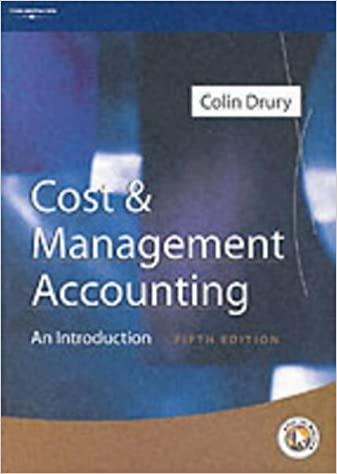Relevant costs and cost behaviour (a) Distinguish between opportunity cost and out of pocket cost giving a
Question:
Relevant costs and cost behaviour
(a) Distinguish between ‘opportunity cost’ and
‘out of pocket cost’ giving a numerical example of each using your own figures to support your answer. (6 marks)
(b) Jason travels to work by train to his 5-day week job. Instead of buying daily tickets he finds it cheaper to buy a quarterly season ticket which costs £188 for 13 weeks. Debbie, an acquaintance, who also makes the same journey, suggests that they both travel in Jason’s car and offers to give him £120 each quarter towards his car expenses. Except for weekend travelling and using it for local college attendance near his home on three evenings each week to study for his CIMA Stage 2, the car remains in Jason’s garage.
Jason estimates that using his car for work would involve him, each quarter, in the following expenses:
After ten weeks, however, it became obvious that the sales budget was too optimistic and it has now been estimated that because of a reduction in sales volume, for the full year, sales will total £2560000 which is only 80%
of the previously budgeted figure.
You are required to present a statement for management showing the amended sales and cost structure in £s and percentages, in a marginal costing format.LO1
Step by Step Answer:






